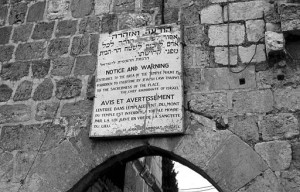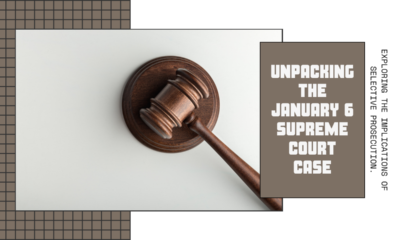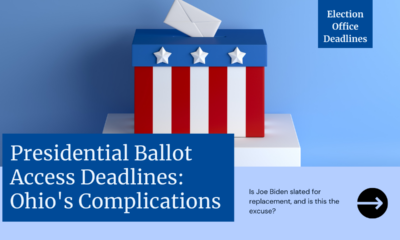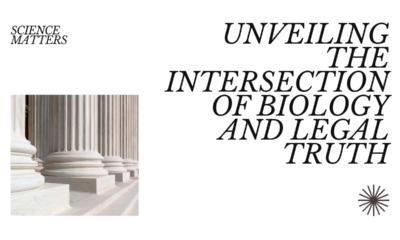Guest Columns
Jewish statesmanship

Jewish statesmanship doesn’t really exist in Israel. Jews do become prime ministers, as did Benjamin Disraeli and Pierre Mendes France. But no sober person expected Jewish statesmanship from an English or a French Jew. No one expected them to incorporate Jewish laws and principles into the legislation of their respective countries, or to pursue foreign policies inspired by distinctively Jewish goals. These Jews did not think like Jews but like Gentiles. Much the same may be said of the prime ministers of Israel.
Key terms of the debate
At this point, we had better define our key terms.
If statesmanship is defined as the application of philosophic wisdom to action, then Jewish statesmanship is the application of Jewish wisdom to action. Architectonic statesmen such as James Madison and Alexander Hamilton studied the great philosophers, those who addressed themselves to such questions as “How should man live?” and “What kind of government is most conducive to human excellence?” They employed ancient and modern wisdom in the process of designing a constitution appropriate to the character and circumstances of the American people./[1]
Although authentic Jewish statesmen will study the great philosophers, they will delve primarily into the wisdom of Judaism and ask, “How should Jews as Jews live?” and “What kind of government is appropriate to contemporary Israel and conducive to Jewish excellence?”
When we consider, however, the conflicting doctrines of philosophers and the diverse life experiences of hundreds of Jewish communities during the last two thousand years, it will be obvious that Jewish statesmanship is far beyond the capacity of ordinary politicians. Still, Jews can ill-afford to leave their destiny in the hands of political amateurs. This certainly applies to minuscule Israel whose neighbors consist of Arab-Islamic dictatorships.
Part I. Prerequisites of Jewish Statesmanship
Jewish statesmanship has three basic prerequisites:
- Statesmen possessing Jewish and secular wisdom;
- Political institutions that enable statesmen to exercise leadership yet render them accountable to their people; and
- A people whose love of freedom is embedded in a tradition that honors moral virtue, wisdom, and truth.
A. The Jewish Statesman

In 1978 this sign forbade entrance to the Temple Mount according to a then-prevailing interpretation of Jewish law. True Jewish statesmanship might help resolve issues like this. Photo: User Leifern on Wikimedia Commons, CC BY-SA 3.0 Unported License
The Jewish statesman is first and foremost an educator whose power is less political than intellectual and moral. Hence the Jewish statesman must be well educated in the heritage and history of the Jewish People. This is a formidable task, since the knowledge Jews have accumulated during the past four millennia is vast and unsurpassed.
Jews have excelled in virtually every discipline, especially in the domain of law. Consider Jewish law (Halakha), but only so far as concerns the relations between man and man (in contradistinction to the relation between man and God). That we should begin with a consideration of Jewish law in discussing Jewish statesmanship is appropriate if only because Jewish law is the one thing that has preserved the Jewish people and their national identity.
Like other legal systems, Jewish law has various branches, for example, civil and criminal law, public and administrative law. Extant Jewish legal knowledge includes 7,000 volumes or 300,000 instances of case law dealing primarily with the social and economic problems of Jewish communities dispersed throughout Europe and North Africa. Because case law arises out of factual conditions and resolves existential controversies, it is by no means subordinate to codified law. This repository of legal knowledge will be available to statesmen. It will teach him important principles of Jewish governance.
First, Jewish law will teach him that no one is above the law; indeed, that God Himself is bound to observe the laws of the Torah (Jerusalem Talmud, Rosh Hashana 1:3a).[2] Hence our Jewish statesman will reject the Latin maxim Princeps legibus solutus est – The ruler is not bound by the law. A relic of this maxim will be found in modern Israel: “No act of legislation shall diminish the rights of the State, or impose upon it any obligation, unless explicitly stated.”[3]
Second, Jewish law will teach our statesman that the individual must never be sacrificed for the sake of the state.
Third, Jewish law will teach him how to secure individual equity while promoting the common good.
Fourth, since our statesman will be learned in Jewish history, he will know that Jewish law is not static but dynamic, that Judaism reconciles permanence and change. He will know that Jews survived the vicissitudes of the past because, thanks to their great Rabbis, they learned how to adapt to changing circumstances and still adhere to the Torah, mankind’s first written Constitution.
Fifth, our Jewish statesman will know that only this Constitution can unite the Jewish People, and not simply because of the Torah’s world-inspiring wisdom and models of human excellence. For the Torah’s comprehensive and many-faceted system of law can harmonize the social and economic relations of Jews of diverse ethnic backgrounds by providing them with proven and venerable methods of resolving their differences. As Professor Menachem Elon, former Vice-President of Israel’s Supreme Court, has written: “it is precisely in all the branches of Jewish law other than marriage and divorce that it is possible … to arrive at a common language and understanding among various elements of the people who differ in their religious and social outlook.”/[4] Since a vital objective of Jewish statesmanship is to promote Jewish national unity, our statesman must be sensitive to the potentially unifying influence of Jewish law.
Sixth, Jewish law provides a rational and ethical foundation for representative government. However, to avoid the mischievous tendency of apologists to assimilate Judaism to democracy, the Jewish statesman will assimilate democracy to Judaism. Accordingly, he will derive freedom and equality, democracy’s two cardinal principles, from the Torah’s conception of man’s creation in the image of God. This will provide these two ethically neutral and indiscriminate principles of democracy with the ethical and rational constraints.
Finally, although our statesman will be educated in Jewish wisdom, he will have learned from such masters of Jewish law as Maimonides and the Vilna Gaon that thorough knowledge of the Torah requires veridical secular knowledge. It follows that “Jewish identity” is not a sufficient condition for Jewish statesmanship. Israel’s religious parties have “Jewish identity.” However, because of their long dependence on secular parties, they lack the breadth of vision and spiritedness required for Jewish statesmanship. Regrettably, the narrowness and timidity of Israeli politics have infected them. Without denying the accomplishments of the religious parties, too often they use Torah for politics rather than politics for Torah. The Jewish People require statesmen who strive for the unity of thought and action prescribed in the Torah. Exemplary personal character, however, is not a sufficient prerequisite for Jewish statesmanship. Which leads us to a discussion of political institutions.
B. Political Institutions
Jewish statesmanship requires for its efficacy well-designed political institutions. Jews possess the ability to flourish under political institutions far superior to those existing in Israel. This is why the present writer has drafted a Constitution appropriate to the character and circumstances of Israel’s Jewish population./[5] Although this Constitution and its rationale have been published elsewhere, we may nonetheless appreciate the need for constitutional reform simply by examining the inherent flaws of Israel’s existing political institutions.[6] This will explain why Jewish statesmanship does not exist in Israel today.
Political institutions are not morally neutral mechanisms. They can influence the character and conduct of those who make the laws and policies of a state. Although even the best-designed political institutions cannot ensure wise and virtuous leadership, how institutions are designed can either restrain or liberate egoism, the bane of good government.
Egoism is as old as Adam. In Israel, however, egoism wears not even a fig leaf. Egoism has been institutionalized in this country in two basic ways. First, Israel’s parliamentary system of proportional representation with a mere 3.25% electoral threshold fosters what may be termed “egocentric pluralism.” In the May 1999 parliamentary elections, no less than 29 MKs hopped over to rival parties. The motive of almost all of these politicians was not ideological. Their object was to obtain a safe place on the lists of other parties. And so, thanks primarily to Israel’s low parliamentary electoral threshold, parties have become havens for job seekers.
Of thirty or more parties competing in an election, ten or more typically win seats in Israel’s 120-member Knesset. Since no party has ever won a majority in that assembly, several parties must join to form a Government, and they do so, said David Ben-Gurion “not on the basis of a common program but merely to divide up the positions of influence and the national budget.”/[7]
This egocentric pluralism in the Knesset splinters the Government, whose cabinet ministers are normally drawn from the Knesset. Lest it be thought that Israel’s Knesset is a powerful institution, it should be noted that no Labor- or Likud-led Government has ever been toppled by a Knesset vote of no confidence./[8] The Knesset is dominated by the medley of party leaders who head the cabinet ministries. Since cabinet ministers appoint the directors of some 100 public corporations, each ministry is a veritable fiefdom. This egocentric pluralism undermines national unity and national purpose. It enfeebles Jewish national consciousness and leaves no vista for Jewish statesmanship.
A basic cause of this intellectual bankruptcy, however, is the dogma, really the myth, of Israeli democracy. Israel’s political and intellectual elites have foisted this myth on a nation of immigrants, most of whom know very little about the institutional prerequisites of democracy, and even less about how to assimilate democracy to Jewish principles and values (something the present author has formulated in several books, some cited in the endnotes).
What makes democracy a myth in Israel and what most contributes to egocentric pluralism is that Knesset Members (MKs) are not individually accountable to the people. Unlike the practice in almost all of 84 democracies, Israelis do not vote for individual candidates in multidistrict or constituency elections. Instead, the entire country constitutes a single district and the voters cast their ballot for a fixed, party-ranked list of candidates, most of whose names, by the way, are unknown to the average voter./[9] Since the party leaders enjoy safe places on their party’s list, their political survival is virtually independent of the outcome of elections. (Shimon Peres was in the Knesset for more than forty years without having won a single election!)
Because an MK does not have a constituency of his own, he owes his position, power, and perks to his party bosses. Which means that an MK cannot block government policies he deems bad without committing political suicide. The parliamentary system of fixed party lists without constituency elections thus produces top-down leadership. This system insulates legislators from citizens and vitiates a basic principle of representative government. No wonder studies indicate that an increasing majority of Israelis feel powerless./[10] In fact, the higher their level of education the more aware they become of the closed nature of Israel’s political system, which they nonetheless deem democratic because of periodic multiparty elections!
Superficial commentators regard Israelis as passive when in truth they are simply powerless between elections. Remarkably, despite their powerlessness, their political activism exceeds that found in most democracies, as the formation of so many new parties in Israel testifies. Moreover, more than 80% of Israel’s Jewish population votes in national elections. Still, the absence of constituency or district elections renders it extremely difficult for Israelis to obtain a redress of their grievances. District elections facilitate closer relationships between legislators and constituents. A legislator may be encouraged (or lobbied) to take up an important but neglected issue, and there are many neglected issues in Israel. This is not to suggest that constituency elections are a panacea. But official corruption and ineptitude are inevitable under a parliamentary system that undermines individual accountability, spawns amateurism, and thus degrades political life in Israel.
What makes this state of affairs all the more intolerable is Israel’s perilous situation in the Middle East. Israeli politicians may be no worse than others, but Israel’s political institutions, especially its parliamentary electoral rules, magnify their vices. Given fixed party lists without constituency elections, Israeli parties constitute self-perpetuating oligarchies that can ignore Jewish public opinion with impunity. To expect Jewish statesmanship (or “Jewish leadership”) within the framework of Israel’s grotesque political institutions is to betray abysmal ignorance. Israel’s political system is no system at all. What reigns is anarchy punctuated by oligarchy!
This undemocratic state of affairs produces a dangerous lack of mutual respect and confidence between the Jews of Israel and their ruling elites, which this besieged country can ill-afford. To fully appreciate this appalling fact, we need to examine the religious and political attitudes of Israel’s Jewish population on the one hand, and those of Israel’s ruling elites on the other. Why Jewish statesmanship does not exist in Israel will then become transparent.
C. Israel’s Jewish Population
Allowing for differences between belief and observance, various studies indicate that approximately 80 percent of Israel’s Jewish population is either religious or traditional. (In fact, a large number of Israeli Jews who identify themselves as “secularists” nonetheless observe certain religious or traditional practices.) This data suggests that a large majority of Israel’s Jewish citizens tend to foster two of the basic characteristics for which the Jewish heritage is famous: moral virtue and wisdom—prerequisites of Jewish statesmanship. Yet no such statesmanship exists in Israel. Why not?
It so happens that the major levers of power in Israel are controlled by left-wing secularists, that is, by alienated Jews (mostly Ashkenazim) representing less than 10 percent of Israel’s Jewish population. The key question is: What preserves the (interlocking) power of this small minority? The answer has already been stated: Israel’s parliamentary electoral system of fixed party lists without constituency elections on the one hand, and the myth of Israeli democracy on the other. The dissipation of this myth and the establishment of constituency elections are necessary (though not sufficient) preconditions for the emergence of Jewish statesmanship. (No less important is public as well as higher education whose shortcomings the author discusses in various books.)
[ezadsense midpost]
Now, to avoid misunderstanding, it should be noted that proportional representation with a 3.25% electoral threshold has made the Knesset more or less representative of the diverse groups composing Israeli society, be they secular or not. This is why the Knesset appears democratic. As previously indicated, however, power is concentrated in the Government. Basic Law: The Government stipulates that “The Government is competent to do in the name of the State, subject to any law, any act whose doing is not enjoined by law upon another authority.” Hence the Government can declare war, make treaties with states, relinquish Jewish land to terrorists, and change the exchange rate without consulting the Knesset! The Knesset, all-powerful in theory, is impotent in practice. The Government, moreover, has always been led either by alienated Jews from the Labor Party or by assimilated Jews from the Likud and Kadima. This means that Israel’s Government, apart from promoting aliya, has never had a national agenda commensurate with the prevailing beliefs and customs of Israel’s Jewish population.
This is most conspicuously true of Israel’s Supreme Court. Like its American counterpart, the Court has sanctioned homosexuality, gay marriages, and pornography, thus fostering the neo-paganism and moral egalitarianism destructive of the family, the heart of Judaism. The judicial philosophy of the Court has been shaped by its former president Judge Aharon Barak, who laid down the imperialistic dictum that “everything is justiciable,” which obviously includes the abiding beliefs and values of the Jewish people. Judge Barak deemed it his duty to be “faithful to the views of the enlightened population in whose midst he sits.” By the “enlightened population” he meant Israel’s diminishing minority of Ultra-Secularists./[11] It should be understood, however, that the power of Israel’s Supreme Court is ultimately dependent on Knesset law. The Court’s contempt for the majority of the Jewish people would not get very far if Knesset Members were accountable to the voters in constituency elections.
Israel’s Supreme Court has become a “Courtocracy.” Its disregard of Jewish and even Knesset law may also be seen in its negative attitude toward the Foundations of Law Act, which the Knesset passed in 1980. This most important statute severed Israel’s legal system from the binding force of English common law, and created a link with Jewish law to which it gave official status as a complementary legal source, making Jewish law a part of Israeli positive law. The statute reads, in part: “Where a court finds that a legal issue requiring decision cannot be resolved by reference to legislation or judicial precedent, or by means of analogy, it shall reach its decision in the light of the principles of freedom, justice, equity, and peace of the Jewish heritage.” However, because of its contempt for the general public, the Court has minimized the incorporation of Jewish law (we are not speaking of religious law) into the laws of the state, contrary to the intentions of the Knesset.
Here are some examples of Jewish civil and criminal law which have been incorporated into Israel’s legal system: the Wage Delay Prohibition Law (1955), the Severance Pay Law (1963), the Prohibition of Defamation Law (1965), and the Right to Privacy Law (1981). Also noteworthy are public laws that incorporate basic tenets of Judaism. The Law and Administration Ordinance of 1948 states: “The Sabbath and the Jewish festivals—the two days of Rosh Ha-Shana, the Day of Atonement, the first and eighth day of Sukkot, the first and seventh day of Passover, and the festival of Shavu’ot—are legal holidays in the State of Israel. Non-Jews have the right to observe their own sabbaths and holidays.”[12]
On a more general level, it should be noted that, according to Jewish law, the people are supposed to have a decisive role in the law-making process. This is stipulated in the Babylonian Talmud: “No legislation should be imposed on the public unless the majority can conform to it” (Avoda Zara 36a). This principle is expressed differently in the Jerusalem Talmud: “… any legislation enacted by a court but not accepted by the majority of the public is no law” (Avoda Zara 2:8). Consequently, and as formulated by Professor Elon: “(1) before legislating the legislator must examine and investigate whether a majority of the public will be able to conform to the proposed enactment, and (2) if, after the legislation is enacted, it appears that a majority of the public do not accept it, the legislation is legally ineffective.”/[13]
Two caveats are in order. First, under conventional democratic legal systems, the extent to which the public plays a role before legislation is enacted depends on whether legislators are not only sensitive to public opinion but also directly accountable to the voters in constituency elections. As previously explained, such accountability does not exist in Israel. Second, under the Jewish legal system, the ability of legislators to ascertain whether a majority of the public will be able or willing to conform to proposed legislation presupposes a relatively small country divided into districts for electoral purposes. (I am assuming that legislators will not have sacrificed their intellects to mindless and media-generated opinion polls.)
From the preceding it should be obvious that Jewish law, whether emanating from communal assemblies or from halakhic authorities defies conventional classification. Jewish law cannot rightly be called “theocratic.”[14] Even to describe it as “democratic” is misleading when divorced from a Torah context. But this only means that the Torah is sui generis, that it cannot be accurately understood in Western terms. Nevertheless, making Jewish law a part of Israeli positive law is the most effective way of assimilating democracy to Judaism and of providing freedom and equality with ethical and rational constraints. Indeed, the incorporation of Jewish law into Israel’s legal system is essential to the unity and cultural preservation of the Jewish People.
Part II. Cultural Self-Preservation
The preservation of any nation’s cultural identity obviously requires leaders who can think, speak, and act in accordance with the beliefs and values of that culture. For example, to preserve Ireland’s heritage, the Irish Constitution prescribes that 49 members of its 60-member Senate must be elected from five panels of candidates having professional knowledge of, and practical experience in, the following subjects of public concern: “(1) National Language, Culture, Literature, Art, Education and such professional interests as may be defined by law for the purpose of this panel; (2) Agriculture and allied interests …; (3) Labor, whether organized or unorganized; (4) Industry and Commerce, including banking, finance, accountancy, engineering and architecture; (5) Public Administration and social services…”
Clearly, Ireland’s Constitution prescribes a Senate consisting of well-educated adults—professionals—not amateurs who become instant legislators or even instant cabinet ministers, as do retired Israeli generals. Israel should not have to learn from Ireland. The Torah states: “Select for yourselves men who are wise, understanding, and known to your tribes and I will appoint them as your leaders” (Deut. 1:13).[15] Jewish law prescribes representative government by meritorious and trustworthy men. No social stratification is intended. The Mishna states that, “In procuring their release from captivity a learned bastard takes precedence over an ignorant high priest” (Horayot 3:8).[16] Two proselytes, Shemaya and Abtalyon (the famous teachers of Hillel and Shammai of the Mishna), served as the President and Deputy President, respectively, of the Great Sanhedrin (Gittin 57b; Yoma 71b).
Consider the awesome power invested in those on whom the security and well being of a people depend. Surely such power should be adorned with wisdom, understanding, and knowledge, to which Exodus 18:19 adds fear of God, love of truth, and hatred of injustice. For a people to place their heritage and future in the hands of mediocrities is absurd. That Ireland’s Senate must include persons having professional knowledge of the country’s Language, Culture, Literature, Art, and Education signifies that its Constitution’s paramount concern is to preserve Ireland’s heritage, which requires well-educated Irish—not English—statesmen.
If we respect a people’s right to cultural self-preservation, we must then accept the following conclusion. If Israel is to be a Jewish State and not merely a state in which Jews are nothing more than a numerical majority, Israel must cultivate statesmen who can think, speak, and act Jewishly. Such statesmen would have to comprehend the panorama of Jewish thought, the diverse ethnic backgrounds of the Jewish people, and the potential unifying influence of Jewish law. Only such statesmen would be able to formulate new laws that strengthen the bonds of the Jewish People, deepen their reverence for the past, and, at the same time, foster Jewish pride and confidence in the future.
Part III. Summary and Conclusion
This essay has outlined the basic prerequisites of Jewish statesmanship: (1) statesmen possessing Jewish and secular wisdom; (2) political institutions that enable statesmen to exercise leadership yet render them accountable to their people; and (3) a people whose love of freedom is embedded in a tradition that honors moral excellence, wisdom, and truth.
We have seen that a large majority of Israel’s Jewish population is religious or traditional. This majority is an increasing one, first because religious and traditional Jews have a higher birthrate than secularists, and second because a renaissance in Jewish philosophy is occurring in Israel./[17] Moreover, Jews with strong Jewish roots are well represented in the Israel Defense Forces, in the country’s academic institutions, and in the professional sectors of Israel’s economy. Conditions are thus emerging for the assumption of national leadership by a Jew with this supportive background of talent and sense of Jewish awareness. Jewish statesmanship is on the horizon.
One last word. The highest function of any statesman is to educate his people and to inspire them with confidence in the future. This the Jewish statesman must also do. In so doing, however, the Jewish statesman must bear uppermost in mind Israel’s world-historical function. For let it be known to young and old, in every classroom, from every pulpit, in every assembly, and wherever people gather, that Israel’s only justification is to sanctify God’s Name. And this Israel can only do as a nation in which freedom dwells with righteousness, equality with wisdom, wealth with beauty, the here and now with love of the Eternal.
* * *
[1]Eighteenth-century scholars saw in the American Constitution principles rooted in the Torah. See Abraham I. Katsh, The Biblical Heritage of American Democracy (New York: KTAV Publishing House, 1977), ch. 2. See also Paul Eidelberg, Rescuing America from Nihilism: A Judeo-Scientific Approach (Springdale AR: Lightcatcher: 2014), Prologue.
[2] This contrasts with Islam, whose deity is above the law because Allah whose quintessential attribute is power unbound by reason and justice. See Robert R. Reilly, The Closing of the Muslim Mind (Wilmington: ISI Books, 2010), ch. 4.
[3]Interpretation of Ordinance, Section 42.
[4]Menachem Elon, Jewish Law (4 vols.; Philadelphia/Jerusalem: Jewish Publication Society, 1994), IV, 1606, translated from the Hebrew by Bernard Auerbach and Melvin J. Sykes.
[5]See Paul Eidelberg, Jewish Statesmanship: Lest Israel Fall (Lanham, MD: University Press of America, 2002), ch. 10; The Myth of Israeli Democracy (Fullerton, CA: Davison Press, 2006), 58-63; An American Political Scientist in Israel (Lanham, MD: Rowman & Littlefield, Lexington Books, 2010), ch. 10.
[6] Ibid.
[7]David Ben-Gurion, Israel: A Personal History (Tel Aviv: Sabra Books, 1972), 552.
[8]The one seeming exception occurred in 1990, but that was a government of national unity.
[9]The Netherlands also has a single countrywide district election (and an even lower threshold of 0.67%); but in this homogeneous, constitutional monarchy, the voters can change the order of candidates on a party’s list. Although some parties use “primaries” (which amounts to polling their central committees or membership), to determine the order of their lists, this does not significantly diminish their oligarchic character.
[10]See Asher Arian, Politics in Israel (Chatham, NJ: Chatham House, 1989), 2d ed., 276, 284-285.
[11]Cited in Yonason Rosenblum, “He Who Judges Too Much Judges Not At All: The Controversial Course Pursued by Israel’s Supreme Court,” The Jewish Observer, Nov. 1996, 8.
[12]Cited in Elon, Jewish Law, IV, 1646.
[13]Ibid.
[14] See Paul Eidelberg, Toward a Renaissance of Israel and America: The Political Theology of Rabbi Eliyahu Benamozegh (Springdale AR: Lightcatcher Books, 2009), ch. 1.
[15]See Exod. 18:19: “… seek out from among all the people men with leadership ability, God-fearing men–men of truth who hate injustice.” Similar qualifications are prescribed in the original constitutions Maryland, Massachusetts, New Hampshire, and Rhode Island. See Eidelberg, The Philosophy of the American Constitution, pp. 266-270.
[16]In procuring their release from captivity, “a scholar takes precedence over a king of Israel” (Horayot 23a).
[17]See, e.g., Akiva Tatz, WorldMask (New York: Targum/Feldheim 1995); Paul Eidelberg, A Jewish Philosophy of History (Springdale, AR: Lightcatcher Books, 2007).
[ezadsense leadout]
-

 Executive2 days ago
Executive2 days agoJanuary 6 case comes down to selective prosecution
-

 Executive22 hours ago
Executive22 hours agoBiden ballot woes continue
-

 News2 days ago
News2 days agoRolling the Dice on Republicans: Has the Right Become Delusional?
-

 Civilization1 day ago
Civilization1 day agoPresident Biden Must Not Encourage Illegal Mass Migration From Haiti
-

 Executive1 day ago
Executive1 day agoWhy Fatal Police Shootings Aren’t Declining: Some Uncomfortable Facts
-

 Guest Columns1 day ago
Guest Columns1 day agoWhat Was Won in No Labels’ Crusade
-

 Constitution1 day ago
Constitution1 day agoEquality Under the Law and Conflicts of Interest in New York
-

 Civilization2 days ago
Civilization2 days agoBiology, the Supreme Court, and truth












Si Lent Cal liked this on Facebook.
Digg Patriots liked this on Facebook.